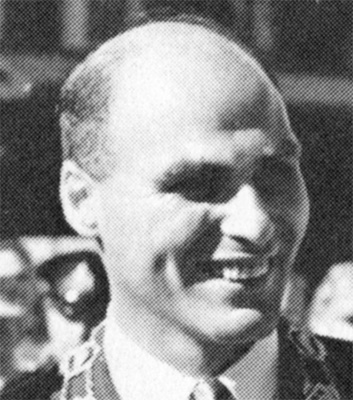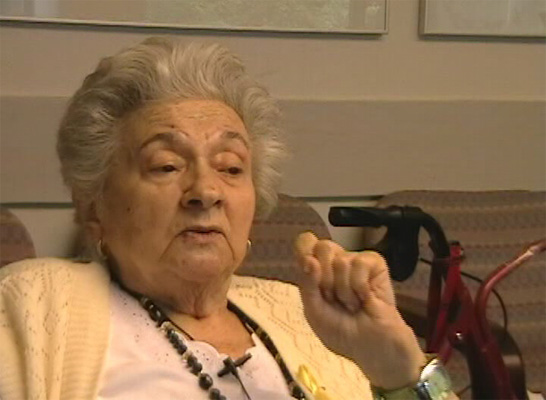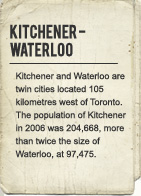Involvement in Community and Political Life
Jews in Kitchener-Waterloo have always been connected to the larger community through their volunteer work, club participation and political service. Numerous Jews became known in the larger community for their participation on the Kitchener-Waterloo School Board, Canadian Red Cross, Canadian Cancer Society, City Council, Chamber of Commerce, Police Board, Rotary Club, and Kiwanis Club. One example is Gordon Strauss, who served as the President of the local Businessmen’s Association. As well, B’nai B’rith and Sisterhood have from their beginnings supported local hospitals and students.
In the early 1950s, Michael Walters became the first Jewish city alderman in Kitchener. In 1957, Harold Paiken was elected the first Jewish mayor of Waterloo. He had served as the city’s first Jewish alderman for five years before that. In 1959, Harold Daufman became the first Jew in Canada to be appointed Crown Attorney. A fourth prominent figure was Morley Rosenberg, elected Mayor of Kitchener in 1977.
Jews also distinguished themselves in recreational sports and the arts. This began in the 1920s with furrier Bill Kosky performing in the local dance band The Charleston Boys. Various individuals coached golf, junior hockey, and the Kitchener Dodgers baseball team. Kitchener women were active on the K-W Ballet Guild and the board and women’s committee of the K-W Symphony Orchestra. Most notable is the number of Jews involved with the Kitchener-Waterloo Little Theatre in the 1950s and 1960s. Samuel Levene and Marvin Schiff were award winners for their work there; Mavis Wyse was make-up artist for ten years; Morley Rosenberg was president; and Harold Paiken was director.
More recently, the Holocaust Education Committee has played a very important part in the K-W community. It had its roots in a committee formed in 1984 by Eve Bergstein, Jennifer Shalinsky and Nettie Steinhouse. From 1991 to the present, the Waterloo County Holocaust Education Committee holds yearly student seminars where 800 students hear a keynote address, survivor testimony, and take part in enlightening dialogue. Each fall the Committee organizes a teacher’s conference. Mania Kay is a survivor who has spoken in schools for many years and is proud of her legacy. “As hard as it was, I felt, I’m not letting the memory of those who disappeared just be forgotten.”










